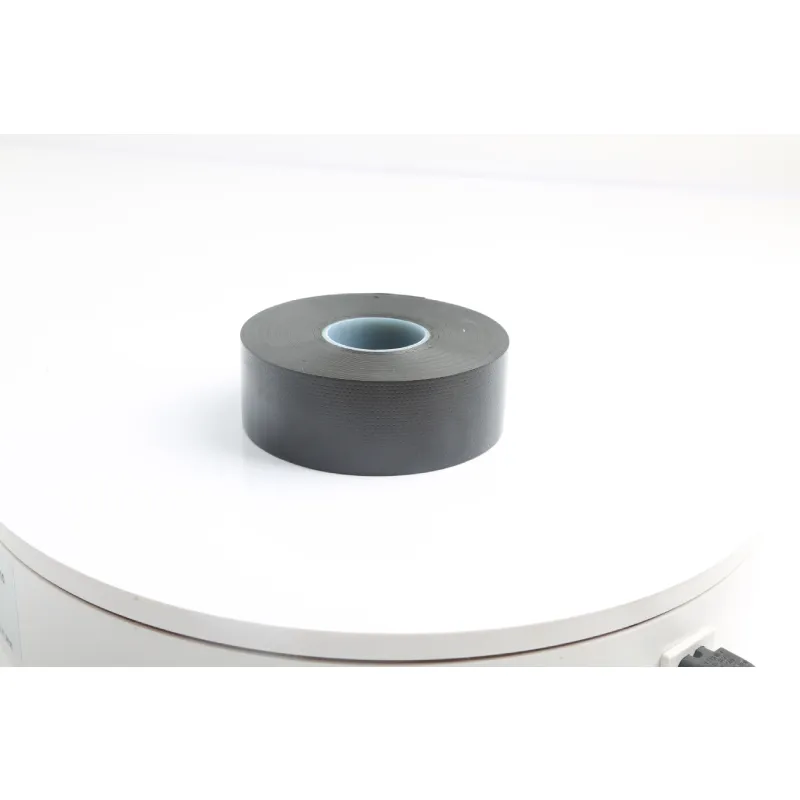The Significance of Electrical Insulation Cotton Tape in Modern Applications
Electrical insulation cotton tape is an essential component in various electrical and electronic applications. Serving as a reliable insulating material, this tape is designed to protect electrical components from short circuits, moisture, and mechanical damage. With its unique properties, electrical insulation cotton tape offers numerous advantages in both industrial and residential settings.
One of the primary benefits of electrical insulation cotton tape is its excellent dielectric strength. This property ensures that the tape can withstand substantial voltage levels without conducting electricity. As a result, it acts as a potent barrier against electrical leaks, making it an ideal choice for wiring and insulation in electrical applications. In environments where electrical safety is paramount, such as in power generation and transmission facilities, the use of high-quality insulation tape is crucial.
In addition to its electrical insulating properties, cotton tape is favored for its durability and resilience. Unlike many plastic-based insulating materials, cotton tape maintains its integrity over time, resisting wear and tear even in the harshest conditions. Its robust nature allows it to perform reliably in environments subject to chemicals, extreme temperatures, and mechanical stress. Consequently, industries such as automotive, aerospace, and manufacturing increasingly rely on electrical insulation cotton tape for long-lasting and dependable solutions.
Moreover, electrical insulation cotton tape is versatile and easy to work with. It can be easily torn, cut, or shaped to fit specific needs, allowing for seamless application on various components and surfaces. Technicians and electricians appreciate its ease of use, which can save time and reduce errors during installation and repairs. The tape's flexible nature ensures that it adheres well to irregular shapes and surfaces, creating a reliable seal that enhances its insulating capabilities.
electrical insulation cotton tape

Another advantage of cotton tape is its environmental safety. Unlike some synthetic insulating materials that may release toxic chemicals during production or disposal, cotton-based products are generally more eco-friendly. Cotton itself is a renewable resource, and many manufacturers produce electrical insulation cotton tape using environmentally responsible practices. This aspect makes it a more sustainable choice for consumers and industries focused on reducing their ecological footprint.
Furthermore, the visibility of cotton tape is an often-overlooked trait that adds to its utility. Many electrical insulation cotton tapes are available in bright colors, which aids in identifying different wiring systems and circuits. This feature can enhance safety and efficiency in complex electrical setups, helping technicians quickly locate and assess wiring without confusion.
While electrical insulation cotton tape serves a critical role in electrical safety and insulation, users must understand its limitations. It is essential to choose the right grade of tape for specific applications. For instance, while general cotton tape may be suitable for low-voltage applications, high-voltage environments would require specialized insulation tapes designed to withstand extreme conditions. Therefore, before selecting a tape for an application, it is crucial to consider the performance requirements, including voltage rating, temperature range, and environmental factors.
In conclusion, electrical insulation cotton tape is a vital material that plays a significant role in ensuring safety and reliability in electrical applications. With its excellent dielectric properties, durability, versatility, and eco-friendliness, it stands out as a preferred choice in various industries. Whether in residential wiring or high-demand industrial settings, the importance of using the right insulating materials cannot be overstated. As technology continues to advance, and the push for sustainable practices grows, electrical insulation cotton tape is likely to remain a fundamental component of electrical safety and performance for years to come.
-
XIANGFAN Rubber Tape-Ultimate Solutions for All Your Insulation NeedsNewsJun.24,2025
-
XIANGFAN Rubber Tape-Protection for Industrial and Residential ApplicationsNewsJun.24,2025
-
XIANGFAN Rubber Tape: Superior Safety and Sealing for Demanding EnvironmentsNewsJun.24,2025
-
XIANGFAN Rubber Tape: Reliable Solutions for Every Electrical ChallengeNewsJun.24,2025
-
XIANGFAN Electrical & Industrial Tape: Powering Reliability Across IndustriesNewsJun.24,2025
-
XIANGFAN Electrical & Industrial Tape: Excellence in Every ApplicationNewsJun.24,2025
